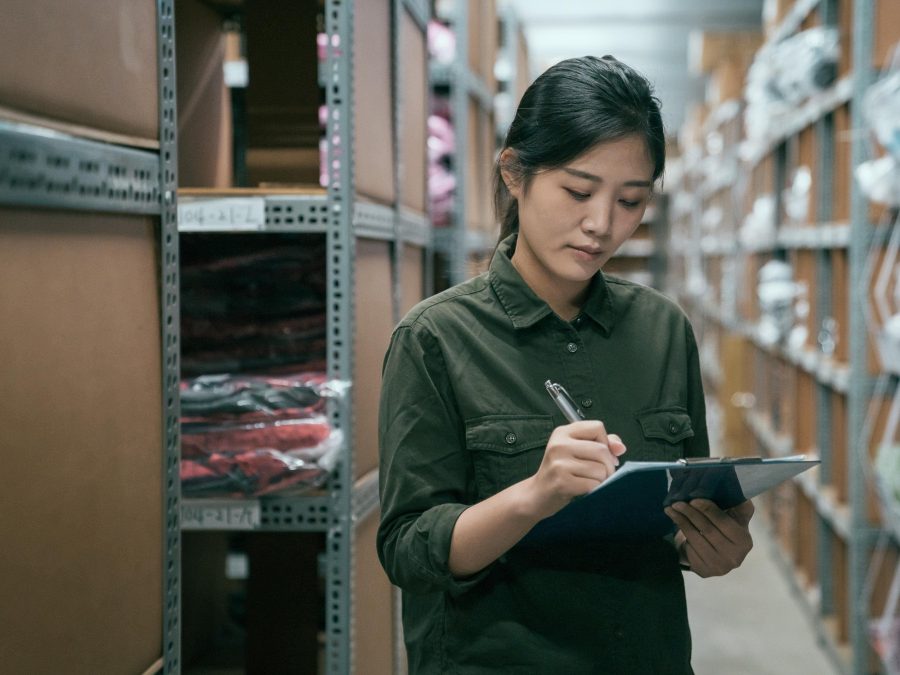Third-party fulfillment is a logistics model in which the owner outsources order processing to an external provider. When will it work best? Take a look at our brief guide.
Third-party fulfillment – table of contents:
- What is third-party fulfillment?
- Understanding third-party fulfillment
- Third-party fulfillment – how to start?
What is third-party fulfillment?
Third-party fulfillment is a logistics model which involves outsourcing tasks such as packing boxes and shipping orders to an external company. It is frequently used by entrepreneurs in the ecommerce industry. Depending on what the owner of an online store needs, they can hand over all or part of the TSL (transportation, shipping and logistics) processes to a business partner.
This includes warehousing, shipment preparation, shipping and handling returns. However, in order to use such services, you need to implement the system first. A dedicated warehouse system will let you effectively manage your orders. It will help you view the list of products, deliver notifications or handle returns.
Storage of products is one of the most important elements of third-party fulfillment. The cooperating company should provide storage space with adapted infrastructure that will ensure optimal storage conditions for products depending on their type. Metal racks, hangers, as well as zones with restricted access and temperature control should be available.
The fulfillment company will also take care of the proper packaging of the products according to the store owner’s guidelines. This can be eco-friendly or personalized packaging with extra promotional materials. Individual packaging will boost your brand awareness, as well as add value for the end customer.
Order fulfillment should be done in the shortest possible time. If the customer buys a product by a certain time, shipping usually takes place on the same day. Large fulfillment companies often have contracts with courier companies, so you can count on attractive prices. Customer returns and complaints are part of the deal when you manage an online store. Fortunately, a logistics operator can take over handling this process for you.
Understanding third-party fulfillment
Third-party fulfillment is mainly dedicated to small and medium-sized ecommerce businesses. Such online stores most often sell popular products, such as clothes, cosmetics or electronic devices. It is also a particularly convenient solution for companies that are just starting out in the e-commerce industry. As a result, they don’t have to invest in their own space to store goods. This lets them save a lot of money at the beginning.
The popularity of online shopping is increasingly growing. This has been heavily influenced by the Covid-19 pandemic. Some companies could not cope with the flood of orders – mistakes, delays, or incomplete packages made the reputation of these brands drop significantly.
A larger warehouse, more employees or a new IT system are often also needed. Running all the logistics can be a very engaging, but also an expensive task. Therefore, it is often better and more convenient to use a ready-made solution, such as third-party fulfillment.
This will work especially well during a period of rapid brand development. Then, investing in your own warehouses may prove too costly. Third-party fulfillment is an excellent way to increase business efficiency and optimize costs.

Third-party fulfillment – how to start?
Many entrepreneurs wonder how to start using third-party fulfillment. Contrary to popular belief, it is not that difficult at all. In the beginning, it’s worth conducting a thorough analysis of the condition of your company.
You need to answer the question how many clients your store has daily/weekly/monthly and how big their orders are. The type of goods you sell – the number, dimensions or other characteristics – are also important. All this affects the entire logistics. With such data, the fulfillment service can be priced.
Who to turn to if you want to use third-party fulfillment services? It’s worth doing research and choosing a professional and experienced company that will take care of everything comprehensively and provide proven solutions. It must have adapted warehouses, which are operated by qualified employees, and use modern IT systems. It must also deliver excellent customer service.
Remember to read other online store owners’ opinions who have chosen the services of this particular provider. In fact, such a company should make the seller’s work a lot lighter. Acting on the seller’s behalf, it must guarantee the highest quality possible. After all, the reputation of your company depends on your logistics provider’s reliability.
Read also:What is an e-commerce strategy?
If you like our content, join our busy bees community on Facebook, Twitter, LinkedIn, Instagram, YouTube, Pinterest.
Author: Martin Sparks
E-commerce enthusiasts which constantly digs around the internet in order to make sure he hasn’t missed any important information on the topic of starting and scaling profitable online stores.


















